 Teadus ja Kunst
Teadus ja KunstНаука и Искусство
Science and Arts
 Teadus ja Kunst
Teadus ja Kunst
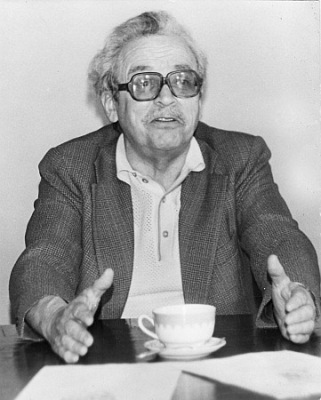
Rem Naumovich Blum-Russak, PhD, Professor of Philosophy at Tartu State University was born on October 2, 1925 in Mogilev(Belorussia). Raised in a poor Jewish family, Rem’s father became an active member of the revolutionary movement and in March1917 joined the ranks of the Bolshevik Party. The name Rem, which is formed from the initial letters of the words Революция, Электрофикация, Мир (Revolution, Electrification, Peace), reflects the spirit of that revolutionary era. It is particularly thanks to his father that Rem remained faithful to the revolutionary romanticism embraced by the older generation and retained his ability to always soberly assess the existing realities.
In 1937, the family moved to a small town of Kolpino near Leningrad. Here Rem went to a school where the teachers were surviving pre-revolutionary intellectuals who provided high quality learning and instruction. In July 1941, the fifteen-year-old Rem started his career at the Izhora Plants as an apprentice mechanic repairing tanks. Later, the factory workers were transported by planes from the Siege of Leningrad to the mainland and soon afterwards to Saratov. There he continued repairing tanks until 1944. He attempted to join the army twice but got rejected since arms producing factories’ workers were not allowed to engage in military action.
In 1945, Rem Blum finished night school and enrolled in the Department of Philosophy at Leningrad State University. While still a student, he developed an interest in the theory and practice of revolutions and social transformations which he remained committed to all his life. At university, he joined the Communist Party and was elected deputy secretary general for Leningrad State University Committee of the Komsomol, the youth division of the Communist Party.
Upon graduation from university in 1950, Rem was confronted by a new challenge. He could not get a job. Each time he applied for a job and filled in the application form, he was turned down since the response to the fifth item about the ethnic origin outweighed by far any knowledge or skills the applicant might have. Even his former employer the Izhora Plants refused to hire him as a mechanic on the pretext of „having too much education“. Rem started building fences. By a twist of fate, he got an invitation from a classmate to move to Tartu and become a laboratory assistant at Tartu Teacher Training Institute. For the rest of his life, for nearly forty years, Estonia was the country that he made his home and where he pursued his extraordinary academic career.
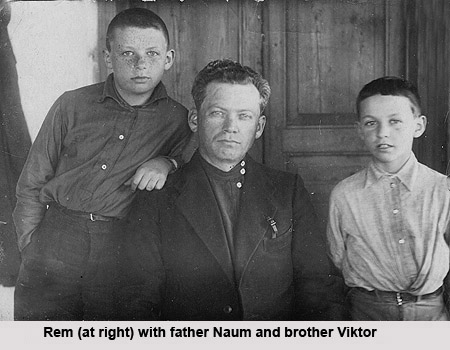
In 1951, Rem Blum started working in the Department of Philosophy at Tartu State University. Initially, as a senior lecturer and after defending his dissertation and obtaining the Candidate of Sciences degree in 1965, as an assistant professor. And from 1975 onwards, when he defended his doctoral dissertation „The problems of revolution in social thought in the second half of the 19th century," as a professor. His scholarly interests were focused on historical materialism and the history of social thought, including the theory of revolution. Rem Blum led philosophy and methodology workshops at Tartu State University and other educational establishments.
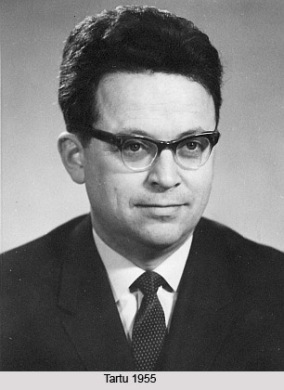
Apart from lecturing and scholarly work, Rem Blum invested a great deal of time and effort into working with young people. This was his ultimate source of joy which gave his life meaning and purpose. He was a fabulous conversation partner, always attentive and fully engaged, always respecting and appreciating other people’s opinion. He was the founder and leader of the Tartu University Philosophy Circle, „a small academy of social sciences“ gathering to discuss developments in science, culture, philosophy, social sciences and debate about the most important issues affecting the world.
A convinced supporter of the 1960s Khrushchev Thaw, he anticipated the birth of perestroika, prepared for it and was ready to act once
it started. He plunged into work with enormous energy delivering lectures across Estonia, in municipalities, enterprises and organisations,
army units, meeting young people, etc. He was actively involved in creating the Popular Front and was member of its governing bodies.
Yet, there was too much of everything, the burden seemed too heavy and on 1 June 1989 his heart stopped beating.
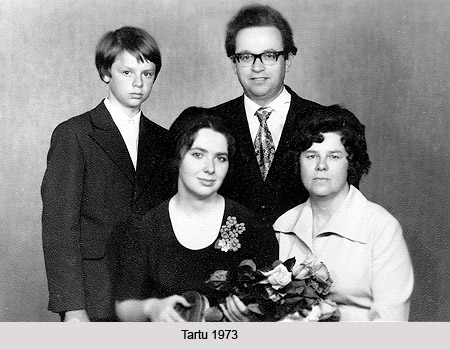
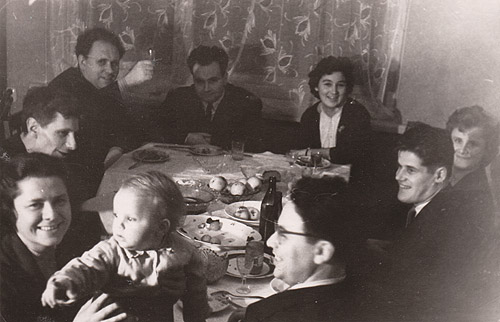
He was an extremely sociable person. Our house was always packed with interesting people. And my mother … she had always food ready for
anyone who happened to pay a visit or popped by. The biggest celebration was, of course, my father's birthday when everybody gathered:
students, members of the philosophy circle, friends. According to family tradition dad never invited anyone to his birthday party. And every
time Stolovich called and asked, "when are you not inviting me?" By the way, the students called Stolovich Diamat (dialectical materialism)
Naumovich and dad Histmat (historical materialism) Naumovich.
Lena Blum, daughter
The flat where they lived was was absolutely extraordinary ... Many knew it, and it was real big … not in terms of the number of square
meters, but it terms of its capacity to accommodate crowds of people whether on ordinary working days or during celebrations. Someone came to
visit, someone stayed overnight, someone got a dish warmed up in the kitchen and nothing was really messy as you’d expect. It was clean and neat
and everything was in order, and by order I mean the sort of atmosphere where no-one felt unwelcome or unwanted. The prevailing feeling was that
of being in the company of highly intelligent people, there was a lot of discretion and sympathy and consideration for each other and this emotion
was shared by everyone who happened to come by.
Professor Czeslaw Lushchik, Academician Mikhail Bronstein, Professors Victor Palm and Leonid
Stolovich – everybody gathered here. They debated heatedly about life, about the future, talking themselves hoarse … Here, poems were read …
Nelli Kuznetsova, journalist
"Molodjezh Estonii" 06/06/2003
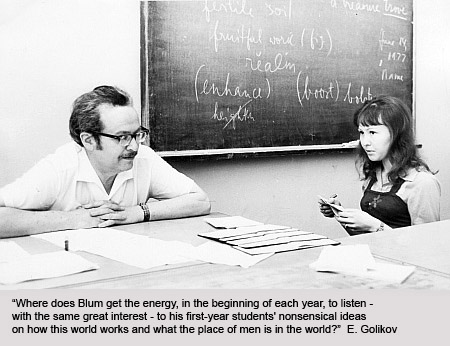
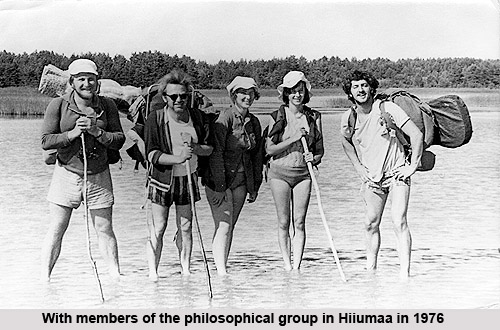
"The ultimate value for Rem Blum was freedom. This word is contained in the title of his monograph “The quest for freedom” which explores the theory of revolution. Thus, despite everything, Rem Blum would still be happpy today. Not because of abundantly stocked store racks, but because of the level of freedom which is immeasurably higher than it used to be in our recent past. Some of his ideals have been achieved and hence, he did not live his life in vain. It’s a pity he cannot see it and experience this feeling of happiness.”
Jaak Allik, Rem Blum’s former student, Member of the Estonian Parliament
"Standing at death’s door, we seek the purpose of human life. And we realise that the ultimate meaning of human existence is immortality. The more good deeds we did during our life, the more we revealed our personality, the more courageously we stood up for human dignity, the bigger our contribution to immortality.”
Rem Blum
Read more on the website remblum.com